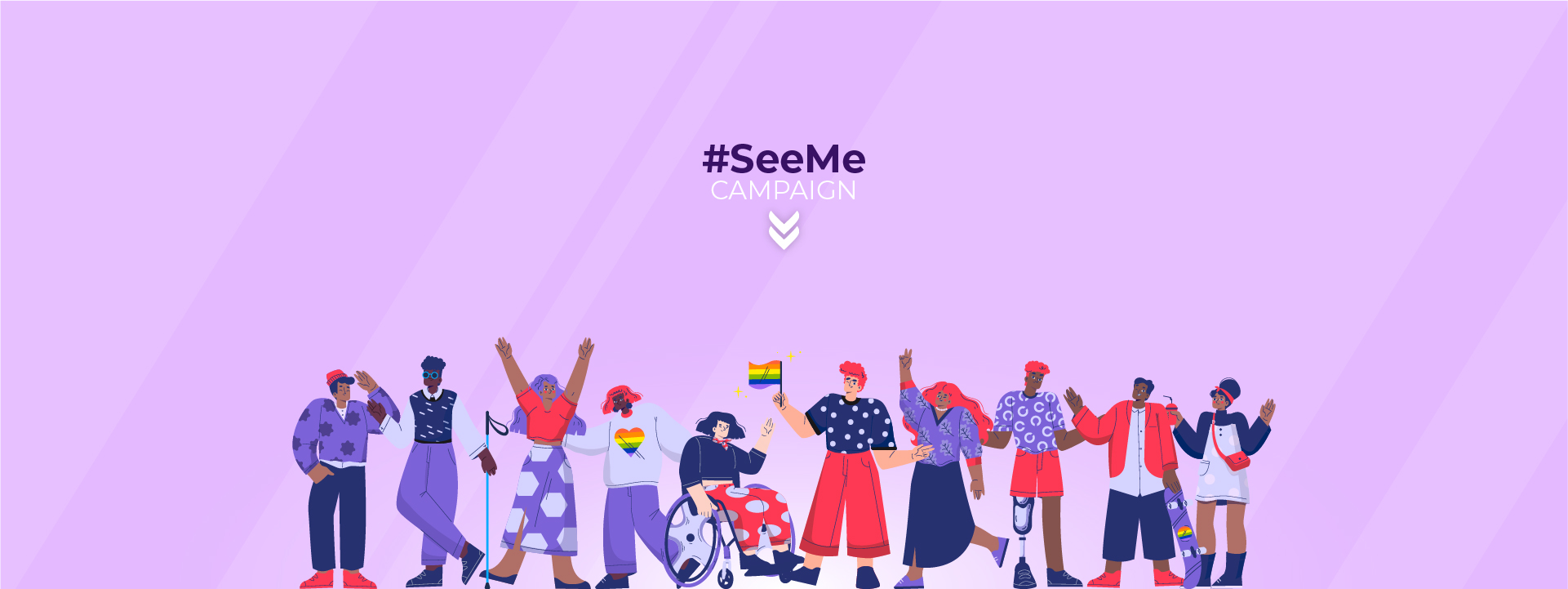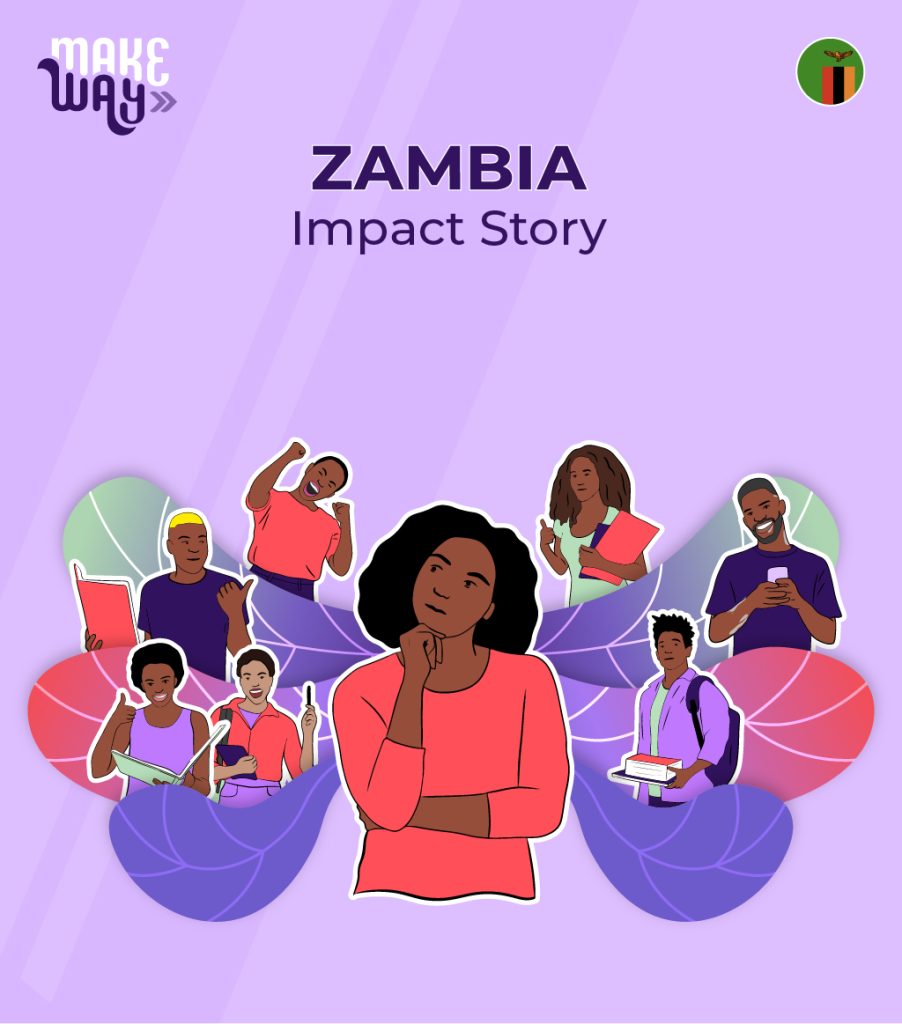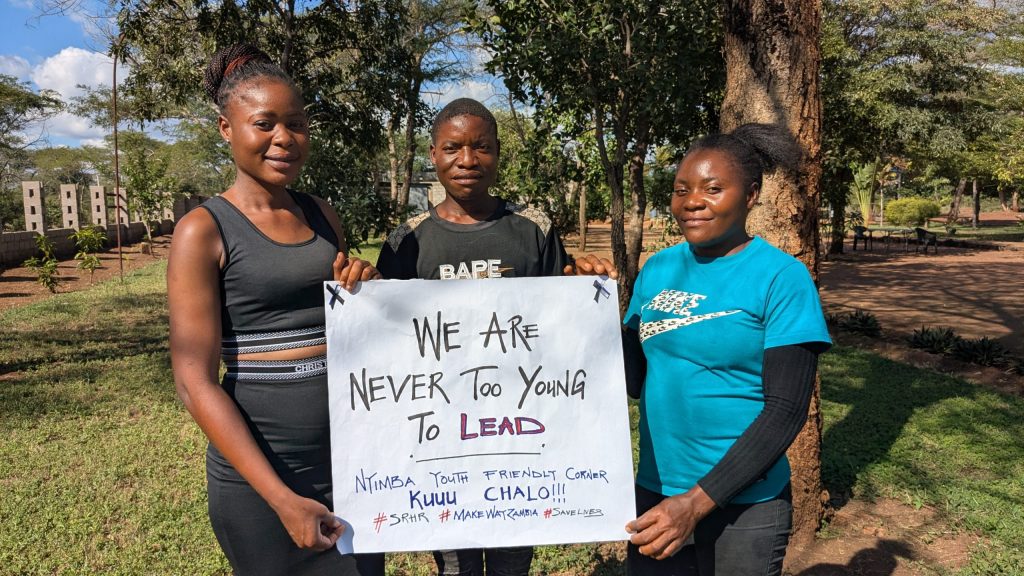Florence Tembo and Mwenya Katongo
Demystifying stigma around SRHR: Make Way’s approach to tackling the SRHR information gap in rural Zambia
Florence Tembo and Mwenya Katongo
In many countries with underfunded healthcare systems, like Zambia, young people in rural settings often have little to no access to sexual and reproductive health information and services. Social stigma from regressive cultural and religious beliefs on SRHR makes even those who might know about the services hesitant to seek them. We spoke with Florence Tembo and Mwenya Katongo about how Make Way has supported the establishment of safe spaces in the Eastern and Southern provinces of Zambia, where youth with compounded vulnerabilities often gather to share SRHR experiences and knowledge without fear of judgement, discrimination or violence. Read more →
This is Nyimba District, Zambia’s Eastern Province, where discussion of sexual and reproductive health and rights (SRHR) topics is culturally taboo, and religious sentiments are highly restrictive of sex education. A young woman, who participates in a Make Way programme’s safe space and wife to a clergyman, is hosted on a radio station to speak about sexual and reproductive health (SRH).
In the course of the conversation, Rose (not her real name) reveals that a recent pregnancy had resulted in a miscarriage, which had led her to seek abortion care at a health facility. She shares this sensitive story in the hope that it enlightens other people in the community on the complexities of abortion care, and why it remains a necessity for many women.
Abortion bans and restrictions also hinder and stigmatise care of women experiencing miscarriages and still births, as medical interventions for these are often similar to those of voluntary pregnancy termination.
Rose sharing her story can be viewed as both courageous and controversial – owing especially to her marriage to a religious leader. But more importantly, it is a critical moment for public sensitisation.
Make Way programme’s interventions
For 5 years now, the Make Way programme has served to break down barriers to SRHR among youth, especially those in marginalised communities. By building capacities of collaborating partners on the ground and local youth, the programme has fostered a conducive environment for youth to actively acquire SRHR information and share it with others, while also advocating for their right to access services.
In the Eastern and Southern provinces of Zambia, Make Way has supported the establishment of safe spaces where youth with compounded vulnerabilities often gather to share SRHR experiences and knowledge without fear of judgement, discrimination or violence.
At safe spaces gatherings, away from societal stigma, youth are not only demystifying myths about SRHR, they have taken up intersectional advocacy, pushing for the change they seek and holding duty-bearers accountable to their duties in providing high-quality, accessible and equitable services.
In the Southern Province, where Make Way collaborating organisation Young Women in Action operates, assistant programme officer, Florence Tembo says that more young people in the area are seeking SRHR information and services, which has boosted prevention of unintended pregnancies and STIs.
With Make Way’s support, Florence’s team conducts capacity building workshops with health workers on reducing stigma against young people seeking services, as well as encouraging them to adopt adolescent-friendly approaches. Many of these workshops include Values Clarification and Attitude Transformation (VCAT) exercises which encourage healthcare providers to challenge their personal biases toward critical SRH services like abortion care, hopefully moving towards more informed and empathetic service delivery.
An intersectional approach
Barefeet Theatre, Make Way’s collaborating partners in the Eastern province, are a cultural movement which believes that artistic expression is a powerful tool for fostering healthy youth expression and transformation.
Project coordinator at Barefeet Theatre, Mwenya Katongo says that Make Way has inspired them to adopt a more inclusive lens to their theatre productions, which has improved how they nurture the youth in their care, and ultimately, the youths’ attitudes. “With a focus on equity, we have seen stronger attitudes of ownership towards initiatives that promote health, well-being, and social justice among the youth participants,” Mwenya explains.
She adds that the programme has also strengthened Barefeet’s capacity in evidence-based SRHR advocacy, enabling them to better influence SRHR policies and structures that directly affect young people.
Like Rose, many young people only get to confront and understand the full extent of SRHR issues after frightening experiences, often because they have no prior access to accurate information on sexual and reproductive health services.
The Make Way programme equips marginalised youth with knowledge, tools and avenues of expression for meaningful participation, in the belief that these young people have the power to collectively address the systemic issues that create SRHR barriers through peer-to-peer learning and advocacy.
Article by Edna Ninsiima.
Photo: Activity with youth from Nyimba about strengthening there capacity to claim spaces and work with health care providers to better manage the youth-friendly ‘safe spaces’ (health spaces).






